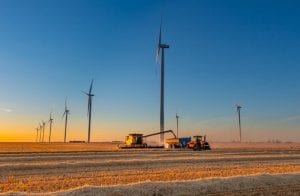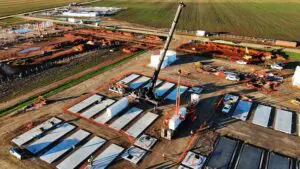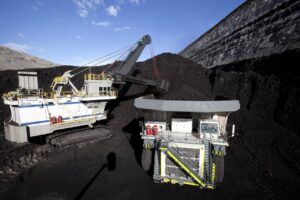The government has declared that it won’t extend the carbon tax beyond June 30, even if the Senate does not pass the repeal legislation by then.
The draft legislative package was released late today, and business and other stakeholders will be briefed tomorrow, as a new round of the game of bluff and blame begins over the first item of legislative business when the new Parliament commences in mid November.
The consultation paper states: “The Government will not extend the carbon tax beyond 2013-14, even if the Parliament does not pass the carbon tax repeal bills until after 1 July 2014.”
The government is telling business it would eventually get the repeal through and it would retrospectively remove liability for the tax. A spokesman for Environment Minister Greg Hunt said tonight: “There is no requirement for businesses to purchase permits beyond the current 2013/14 year.”
Another (unstated) message is also loud and clear: don’t hold your breath for the double dissolution that Tony Abbott has threatened if he can’t get his way. The government says it wants the repeal asap but in fact it is willing to be patient.
The government today wanted the emphasis on the politics. Holding a news conference before the legislation was released, Abbott, invoking religious rhetoric, insisted that Labor would pass it before June 30.
“The new leader of the Labor party is nothing if not a political pragmatist – he is nothing if not a political survivor.
“The absolute lesson of recent Australian political history is that political parties cannot defy the public view, and the public view is overwhelming that they don’t like this toxic tax.
“Now we are giving the Labor party a chance to repent of its support for the carbon tax.
“We are giving the Labor party a chance to repent of its massive breach of faith with the Australian people in the last parliament. I think the Labor party, being pragmatic political survivors, will ultimately embrace that opportunity.”
So far, there is not much sign of “repentance”.
Labor’s spokesman for climate change Mark Butler said Labor “won’t back down on acting on climate change”.
Noting Kevin Rudd’s pre-election promise to bring forward the move to an emissions trading scheme, Butler said that “Labor stands by its election commitment to support the termination of the carbon tax provided that a market mechanism that reduces carbon pollution is put in its place”.
He said the Coalition intended to throw out the baby with the bathwater and leave Australia with no credible policy on climate change.
Bill Shorten during his leadership campaign indicated he believed Labor should stand by its carbon pricing policy. Labor is expected, as a tactical move, to introduce a private member’s bill or an amendment for an ETS. It is assumed that it will oppose the repeal legislation.
While there are some political costs in not accepting the government’s “mandate” – and the issue is complicated by Labor’s pre-election adjustment of its own policy – there would be difficulties within his party for Shorten in appearing to roll over.
If Labor does hold its line and the government has to wait for the new Senate, businesses in making their decisions would have to take the government on trust that after June 30 they would not be liable for the tax or if they became liable the government would give them a refund.
The expectation is that enough of the new crossbench senators, who include those from Clive Palmer’s party, would back repeal. How much time that would take is another matter, Clive is not beyond playing hard to get for a while, and so may others.
Although much of business is looking forward to the end of the tax, for some companies that will bring fresh challenges, including dealing with contracts that have some carbon factors built in and with later arguments about whether they have reduced prices sufficiently.
Michelle Grattan is a Professorial Fellow at University of Canberra. She does not work for, consult to, own shares in or receive funding from any company or organisation that would benefit from this article, and has no relevant affiliations.
This article was originally published at The Conversation.
Read the original article.







